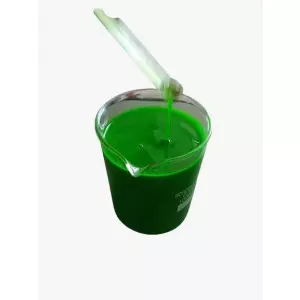- Home
- About Us
- Products
- RUHANI INDUSTRIES PRODUCT LIST
- Automotive Lubricating Oil
- Automotive Grease
- Automotive Coolant
- Industrial Oils & Greases
- Industrial Aromatic Solvents
- Base Oil (Recycled)
- Paraffin Oil
- Glycols
- Industrial Fuel Oil
- Bitumen
- Industrial Wax
- Petroleum Jelly
- Paraffin Wax
- Lubricant Oil Cutting Oil And Coolant Additives
- Diesel Engine Oil Additive Package -CH4/CF4/CI4
- Gasoline Engine Oil Additive Package – SF/SL/SM/SN
- Anti-Wear Hydraulic Oil Additive Package
- Automatic Transmission Oil Additive Package
- Industrial Gear Oil Additive Package
- Tractor Transmission Package
- TBN 400 Synthetic Calcium Suplhoate
- ZDDP Zinc DiAlkyl Dithio Phosphate
- Pour Point Depressant PPD
- Anti Foam - Foam Inhibitor
- Cutting Fluid Additive
- Coolant Additives
- Lube Oil Viscosity Index Improver Polymer
- Organic Waste And Waste Feeds
- Rubber Process Oil
- Carbon Black Powder
- Machine Cutting Oil
- Other Lubricants
- Imported Engine Oil
- Diesel Exhaust Fluid (DEF)
- Industrial Coal
- Base Oil Group 2
- Base Oil Group 1
- Base Oil Group 3
- RUHANI INDUSTRIES PRODUCT LIST
- Updates
- Gallery
- Contact Us
Coolant Additives
Coolant Additives Details
Coolant additives are chemicals or substances that are added to a vehicle's cooling system to enhance its performance and provide various benefits. The cooling system in a vehicle helps regulate the temperature of the engine by dissipating excess heat. Coolant additives can serve several purposes, including:
Corrosion Protection: Additives help prevent the formation of rust and corrosion within the cooling system. Corrosion can lead to the degradation of metal components and reduce the efficiency of the cooling system.
Cavitation Control: Cavitation is the formation and collapse of bubbles in the coolant as it circulates through the engine. This can lead to erosion of the metal surfaces. Additives help minimize cavitation and its damaging effects.
Boiling Point Elevation: Coolant additives can increase the boiling point of the coolant, allowing the engine to operate at higher temperatures without the coolant boiling and causing overheating.
Freeze Point Depression: Additives can lower the freezing point of the coolant, preventing it from freezing in cold temperatures and causing damage to the cooling system.
pH Balance: Maintaining the proper pH level in the coolant is important to prevent acidic or alkaline conditions that can lead to corrosion and other issues.
Water Pump Lubrication: Some additives include lubricants that help extend the life of the water pump and other moving parts in the cooling system.
Compatibility: Additives ensure compatibility between different types of coolants and metals used in the cooling system, preventing chemical reactions that could lead to damage.
Foam Control: Additives can help reduce foaming within the cooling system, which can hinder heat transfer and circulation.
It's important to note that different vehicles and cooling systems may require specific types of coolant additives. It's recommended to follow the manufacturer's guidelines and recommendations when selecting and using coolant additives. Mixing incompatible additives or using the wrong type of additive can potentially lead to damage to the cooling system and reduced effectiveness of the additives.
Related Products
Diesel Engine Oil Additive Package -CH4/CF4/CI4
The designations CH-4, CF-4, and CI-4 refer to different categories of engine oil specifications developed by the Americ... Continue
Gasoline Engine Oil Additive Package – SF/SL/SM/SN
Gasoline engine oil additive packages, such as SF, SL, SM, and SN, refer to different specifications and performance lev... Continue
Anti-Wear Hydraulic Oil Additive Package
An anti-wear hydraulic oil additive package is a formulation of various chemicals and compounds that are blended togethe... Continue
Automatic Transmission Oil Additive Package
An automatic transmission oil additive package is a combination of various chemicals and compounds that are formulated t... Continue
Industrial Gear Oil Additive Package
An industrial gear oil additive package is a blend of various chemical components specifically formulated to enhance the... Continue
Tractor Transmission Package
A tractor transmission package typically refers to a set of components and systems related to the transmission of power ... Continue
TBN 400 Synthetic Calcium Suplhoate
As of my last knowledge update in September 2021, I'm not aware of a specific product named "TBN 400 Synthetic Calcium S... Continue
ZDDP Zinc DiAlkyl Dithio Phosphate
ZDDP stands for Zinc DiAlkyl Dithio Phosphate, which is a type of chemical compound commonly used as an anti-wear and an... Continue
Pour Point Depressant PPD
A Pour Point Depressant (PPD) is an additive used in petroleum products, particularly in lubricating oils and diesel fue... Continue
Anti Foam - Foam Inhibitor
An anti-foam or foam inhibitor is a chemical additive designed to reduce or eliminate foam formation in various industri... Continue
Cutting Fluid Additive
Cutting fluid additives are substances that are mixed into cutting fluids (also known as coolant or lubricant) used in m... Continue












